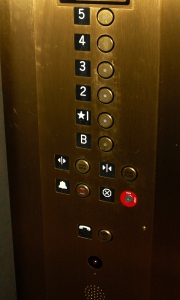When people ask what I do for a living, I can’t help but smile. I tell them the following: “Consultants and entrepreneurial companies hire me to help them increase their fees by up to 2,000%.”
I must have delivered that elevator speech a thousand times, and every time it’s gotten me that treasured response: “How do you do that?”
I didn’t always have a good speech. I used to talk about how I made people memorable or compelling or made them stand out. Now, there’s nothing wrong with saying those things. I still say them. But I was uncomfortable making claims without supplying facts to back them up. So I went hunting for the facts.
Using the freewriting technique I teach in “Accidental Genius,” I typed into my computer as fast as I could for a couple of hours about who my clients were, why they hired me, and how I’d helped them. I wasn’t straining to find the exact right thing to say. I was merely talking to myself about my business while doing a freeform information dump.
One of the things I wrote about was what had happened once my clients adopted the positions I created for them. Did they become famous? Find more prospects? Work on better projects? If so, where was the proof? What were the facts?
I happened upon fees. A client who used to charge $1,000 for an engagement, now charged $20,000. Hmm. A second client, who used to charge $350 an hour, now made $25,000 a day. Huh. A third client, who had been asking $3,000 for a keynote speech, now commanded $20,000. Hah. A pattern was forming.
I was a positioning consultant and writing coach, sure. But I was also the guy whose work helped clients “raise their fees by up to 2,000%.” My assertion was an attention-grabber, in part, because it wasn’t based on some notion I cooked up. It was based on facts.
The right facts make you distinctive.
When people ask me about creating their own elevator speech, I tell them to first list as many facts as they can about their business. Facts about their clients, process, services, products, results, philosophy, guarantees, and background, among other things. Obvious stuff. A long undifferentiated list.
I then ask that they look through that list for distinctive facts. In other words, which items on the list stand out? Which are interesting? Which are unusual? Which tell a story?
When looking for distinctions, some people freeze up. They think that finding distinctions is a special skill. It’s not. Most of us already know how to do it perfectly. We could do it in our sleep. It’s no harder than when we talk about a movie.
If a friend asked about a movie you just saw, you wouldn’t hesitate until you found just the right thing to say. You wouldn’t recount every scene. Instead, you’d head straight for something distinctive:
- “It’s about a robot that travels back in time to protect its inventor.”
- “It’s a horror film in 3-D.”
- “It’s based on a play that won the Pulitzer.”
- “It’s the new Daniel Day-Lewis film.”
Finding business facts to talk about is no different. Let yourself experiment. Look over your fact list, search it for distinctions, and write elevator speeches around those distinctions:
[For a business development consultant] “I design sales pipelines for small businesses that bring in, on average, an additional two hundred thousand dollars in revenue during the first six months alone.” [For a productivity consultant] “Organizations like HP and Proctor & Gamble hire me to set up their employee rewards programs.” [For a fitness trainer] “For eight years, I was a Marine Lieutenant. Now I teach people how to be as fit and tough as a combat Marine.”The purpose of an elevator speech is to get the right people interested in you. It’s to start a conversation.
You may not find the proper speech right away. As you do more projects, come back to the exercise and add facts and distinctions to your list, and see how those might change the elevator speeches you’ve written.

Thanks, Nettie. I know you’re a master at helping people talk about their business, so I’m honored by your compliment.
It’s funny: We tend to compartmentalize our lives. So, we’ll be great at picking out interesting things that happened in a movie, or telling a story about an incident at the mall. But when it comes to applying those storytelling skills to our business, we shut down.
Most of us don’t even realize that talking about a movie we’ve just seen and talking about how our business can help people uses largely the same skill.
This is fantastic insight – I really liked the movie analysis
wonderful
nettie